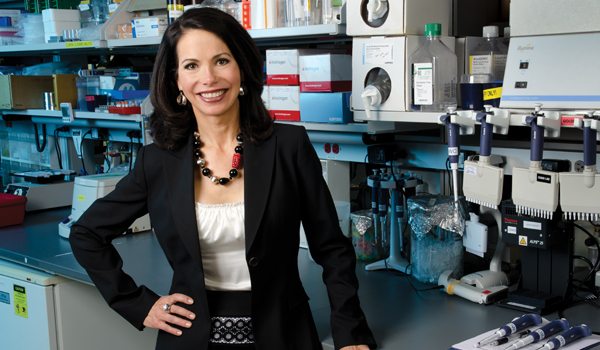The Ben & Catherine Ivy Foundation (Ivy Foundation) announced an extension and funding of an additional $1.3 million for Mayo Clinic to study brain tumor vaccines that combine a patient’s immune stimulators with tumor cultures from other patients. The extension will include a second trial with patients whose brain cancer has returned.
The Ivy Foundation selected the study led by Allan B. Dietz, Ph.D., head of Mayo Clinic’s Human Cellular Therapy Laboratory, and Ian Parney, M.D. Ph.D., a neurosurgeon and immunobiologist, because of Dr. Dietz’s track record in brain cancer research, among other things.
“We chose to fund the extension of Mayo Clinic’s brain cancer study due to the meritorious work being done by Dr. Dietz and his team,” said Catherine Ivy, founder and president of the Ivy Foundation. “With two trials in place, we believe additional and critical information on brain cancer could be generated to impact the patient in the near term.”
Both trials will combine a patient’s optimized dendritic cells, known to be potent immune stimulators, with pooled and well-characterized cellular debris – known as lysates – from other patients’ brain tumor cultures to generate a tumor vaccine. The first trial focuses on people newly diagnosed with brain cancer while the second trial will be with relapsed patients whose brain cancer has returned.
“With the addition of a second trial, we have an incredible opportunity to broaden our studies to patients with recurrent glioblastoma. These patients have few options and desperately need new therapies,” said Dr. Dietz. “The support of the Ivy Foundation makes this research possible and we are deeply grateful.”
The Ivy Foundation has a research funding focus on glioblastoma multiforme (GBM), the most common and deadliest of malignant primary brain tumors in adults, and is the largest privately funded brain cancer research foundation in North America.
“We greatly appreciate the Ivy Foundation’s vote of confidence in our brain cancer study,” said Dr. Parney. “This foundation’s support has been critical to patient-focused brain cancer research. With their help, we hope to find answers for people suffering from this highly aggressive form of brain cancer, glioblastoma.”




